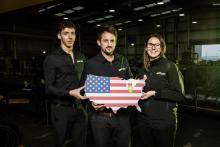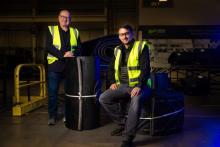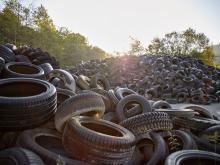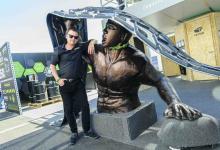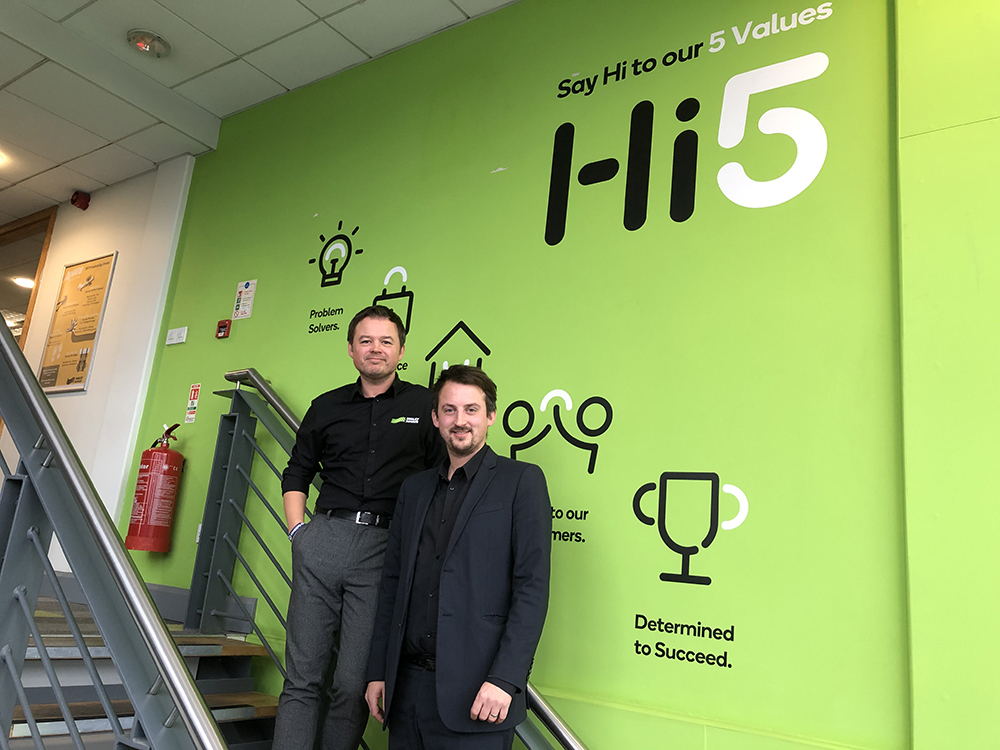
Since being set up in a garden shed in 1979 by Vaughan Monroe and his founding partner Mark Smiley, Northern Irish company Smiley Monroe has grown to become one of the giants in the conveyor belt sector.
The Lisburn-based business serves seven equipment segments: crushing & screening, recycling, washing, wood chipping, agricultural, bulk material handling and road construction. Its two main belt- product offerings are Endless conveyor belts and Zip Clip replacement belts.
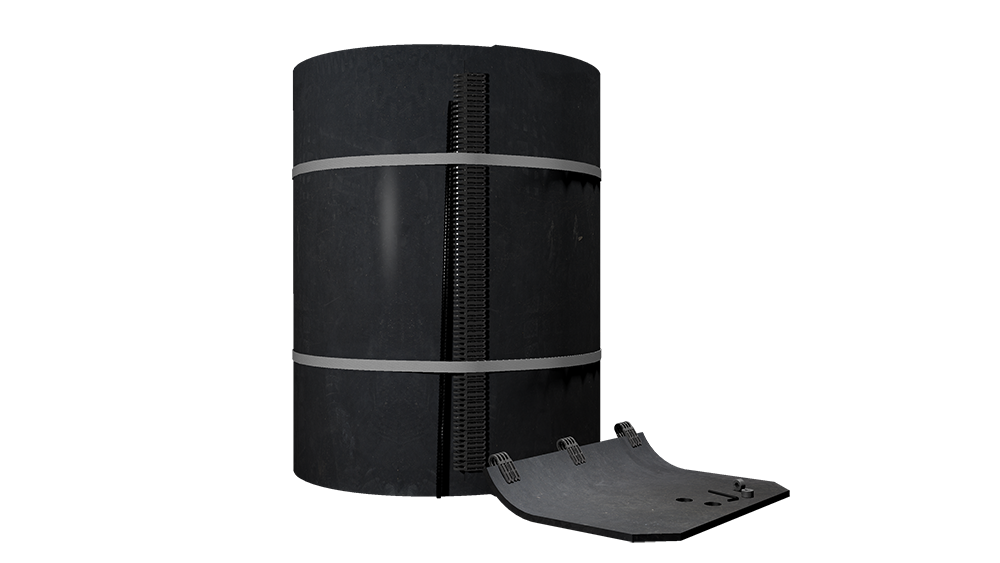
The company is marking its fortieth anniversary with the opening of its first US manufacturing facility in early 2020, which Smiley Monroe Inc. will be showcasing on its outdoor booth at ConExpo in Las Vegas next March.
Smiley Monroe exports to over 60 countries and has a customer list that includes Terex, McCloskey International, Sandvik, Edge, Keestrack, Maximus, Aggregate Industries, Hanson UK, Astec Industries, CDE and Kleemann (part of the Wirtgen Group).
At the time they founded the company, Vaughan Monroe and Mark Smiley both worked for an engineering firm in Belfast that was involved in the production of forklift tyres. They decided to relocate to Lisburn to set up their new venture, and the first employee they took on, David Murphy, is still with the company today.
Vaughan Monroe’s original training had been with Goodyear, where he developed his interest in conveyor belts. The initial business was as a distributor for rubber conveyor belting and providing a local vulcanising service.
The company has been owned by Vaughan & Mary Monroe since the early 1990s, and two of their sons, Tim and Chris, now work in the business. Tim joined at the end of 2006, following a career in film & tv art direction, and is marketing director. Chris worked as a corporate solicitor in England prior to coming on board in January 2013 and serves as global sales director.
In terms of the biggest changes to the company over the last four decades, Tim says the major difference is in its core business. “Since around the turn of the millennium, Vaughan had realised the benefit that locally manufactured Endless belts could offer to customers,” he adds. “Acting quickly on that opportunity is what steered the company into what it is today in terms of Endless belts being our biggest core product.” Initially, the company’s main customers were end users and the core business was resale belts, selling rolls of conveyor belt and providing a fitting service to quarries, mines and cement plants. “The value we added at that point was having a breakdown service and being able to supply high-quality heat-resistant belts for specialist applications such as cement clinker,” says Tim. “Now our core customers are equipment manufacturers - so from a service company we have essentially morphed into a manufacturing business. Looking back, our first experience of manufacturing was exporting rubber screen mats to Great Britain in the 1980s and conveyor impact bars and screen media to the US in the 1990s. Sustainability is another big change. Today our operations in Northern Ireland are powered by 100% clean, renewable energy.”
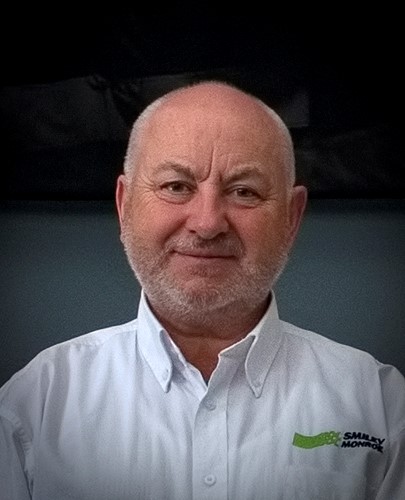
“In three years our sales have grown by approximately £10m to £25m at the end of 2019,” Chris says. This has been driven by the growth of domestic customers but also as a result of new export business. “Over the past 10 years our transformation has been from a local company with a good reputation to a global player.” Exports, from being a very small part of the business, now account for 45% of total sales.
Other major milestones in the company’s history include the £1.2m investment in its first purpose-built facility in Lisburn in 2002, the opening of its first Indian production plant in Hosur, India, in 2012, and a new £800,000 global distribution hub in Lisburn in 2014. To help it stand out from the crowd, the company has also put a strong emphasis on marketing over the years, with its ‘Giants of Belting’ campaign inspired by Northern Ireland’s Giant’s Causeway.
The new US production facility ¬will be based in Franklin, Kentucky. The move has been driven by customer demand, strong industry forecasts and the need to protect the company’s export sales amid the uncertainty surrounding Brexit. Around US$2m is being invested in the plant, which will create 30 jobs.
Tim says the new plant will dramatically improve delivery times for US orders. “At the moment, from the receipt of order in Northern Ireland it can take seven to eight weeks to deliver to the furthest part of America,” he adds. “A lot of customers will have a four-week fixed window for their production schedule, so seven to eight weeks doesn’t crack it.
“By manufacturing in the US we can offer just-in time (JIT) delivery to our American customers. We will be able to deliver goods to almost any part of America within two days, and all of the midwest and east coast within one day.”
Chris adds that the company has been working with US customers for six years, supplying them from Northern Ireland. “The plan with our plant in Kentucky is to move forward with production at the start of February, which is in good time for the official announcement at ConExpo in March,” says Chris.
The US currently accounts for around 5% of the company’s revenue and, with the opening of the new factory, the US business is projected to increase annual sales in the US to US$10m within three years.
The Kentucky plant will have twelve employees in the first year and by the end of 2022 Smiley Monroe plans to have recruited somewhere between 30 to 40 staff. The site manager, Morgan Walker, will be relocating from Northern Ireland with his family to run the facility. “We were very keen to have the right expertise out there,” says Chris.
He adds that aside from new original equipment manufacturers (OEM) business, the company has great opportunities in the US within the aftermarket by working with OEM partners to promote the benefits of Smiley Monroe’s Zip Clip replacement belt.
“That is a big part of our business plan,” says Chris. “We have been listening to our customers about the cost of machine downtime in the field and in the importance of making sure machines can be up and running with a replacement belt as quickly as possible. We believe that Zip Clip is the belt to maximise machine uptime by allowing operators to quickly fit Zip Clip belts themselves and ensure they aren’t waiting on service crews. The majority of sales of our Zip Clip product are into America and a big part of our growth in America is forecast to come from Zip Clip.”
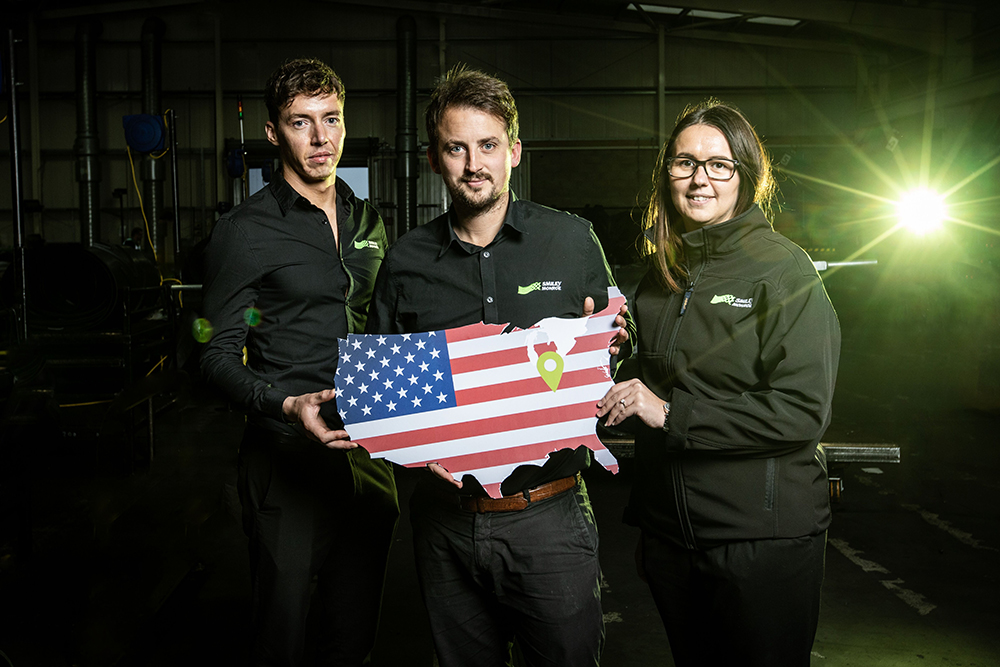
In the US Smiley Monroe supplies the Astec Group, Terex and Wirtgen America. The company is also targeting areas where it currently does not have a big market share, with road construction being one such sector where it sees major opportunities. In April 2019, President Donald Trump and Democrat lawmakers agreed a US$2 trillion plan to overhaul ageing infrastructure in the US. As part of this, the proposed ‘Road Bill’ would authorise a 27% increase in expenditure over a five-year period to US$287bn.
“The Road Bill has released a lot of funding in the US and there is still a lot to draw from that,” Chris says. “We expect the US market to be buoyant for the next four to five years.”
The company is also targeting a potentially huge market for environmental equipment in America. “There is a lot of environmental business in the heavily forested areas in the north of the country, where wood is shredded and converted into renewable biomass fuel,” says Tim.
In terms of new product developments, Tim says customers are asking for an even more durable and puncture-resistant version of its ToughFlex conveyor belt, which is designed to handle tough conveying applications, such as mobile jaw and impact crushing.
“We are working on adding a new Premium Upgrade to our ToughFlex range at the moment,” he says. “It’s our response as problem solvers to new challenges within the ever-evolving recycling sector, where C&D materials such as concrete and steel rebar test conveyor belts to their limits.”


